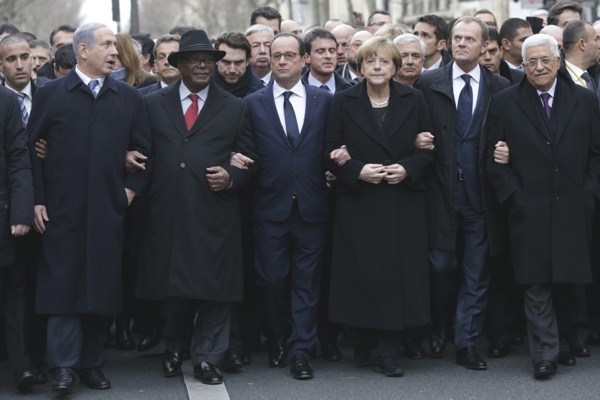The failure of U.S. President Barack Obama’s administration to send a high-level representative to the Paris unity march, convened in the wake of the terrorist attack on the editorial offices of the satirical magazine Charlie Hebdo, is being described by some as the first foreign policy gaffe of 2015.
Given the Obama team’s laser-like focus on domestic issues in the run-up to the State of the Union address, however, it is not surprising. Moreover, given that one of the administration’s goals seems to be to halt further deterioration in the critical U.S.-India relationship, it is very understandable why the president chose not to divert Secretary of State John Kerry from his advance mission to New Delhi to prepare for Obama’s own visit later this month. The administration knows that despite its announced rebalance to the Pacific, Asian leaders are all too aware of Obama’s tendency to shift them to the back burner whenever troubles arise in Europe or the Middle East. Even at the risk of damage to a long-established relationship with France, keeping Kerry in New Delhi was an acknowledgement that India would not be prepared to accept a rain check yet again.
What is surprising, however, is the president’s apparent reluctance recently to use Vice President Joe Biden as an emissary. During the 2013 sequestration crisis, when Obama skipped the East Asia Summit, he sent Kerry instead of having Biden assume the role of presidential stand-in—guaranteeing from a protocol perspective that the U.S. representative would be at the bottom of the totem pole in the presence of heads of state like Chinese President Xi Jinping and Russian President Vladimir Putin. Given the parade of prime ministers and foreign ministers who marched in Paris—including Russian Foreign Minister Sergey Lavrov—having Biden as the U.S. representative would have sent a very clear signal of U.S. intent. One wonders whether the administration is attempting to prevent Biden from positioning himself as “presidential material” on the world stage, or fears that he might upstage Obama himself.

